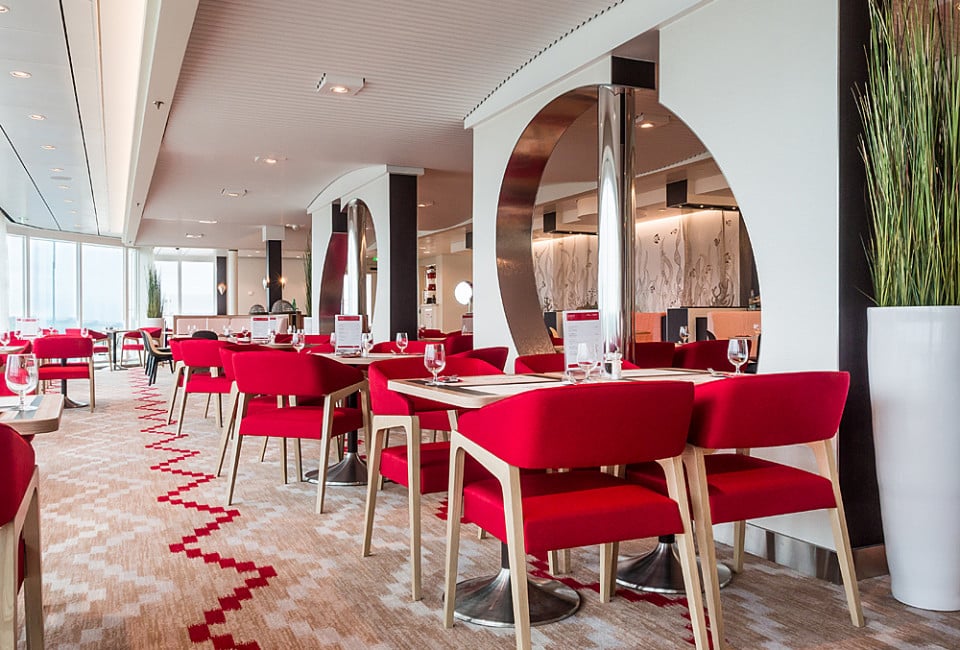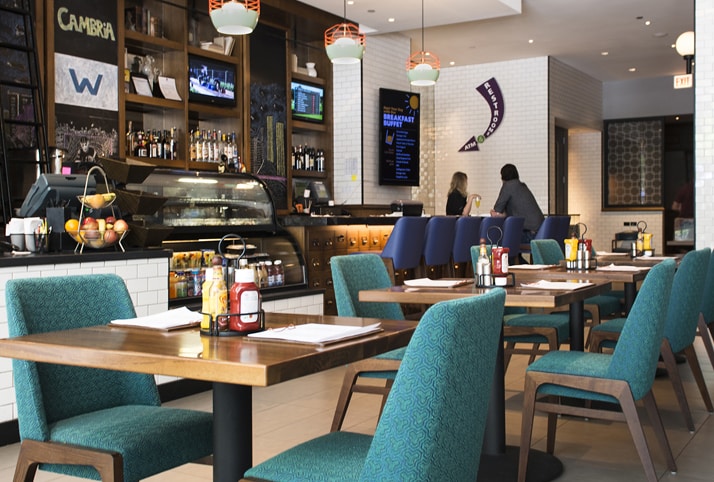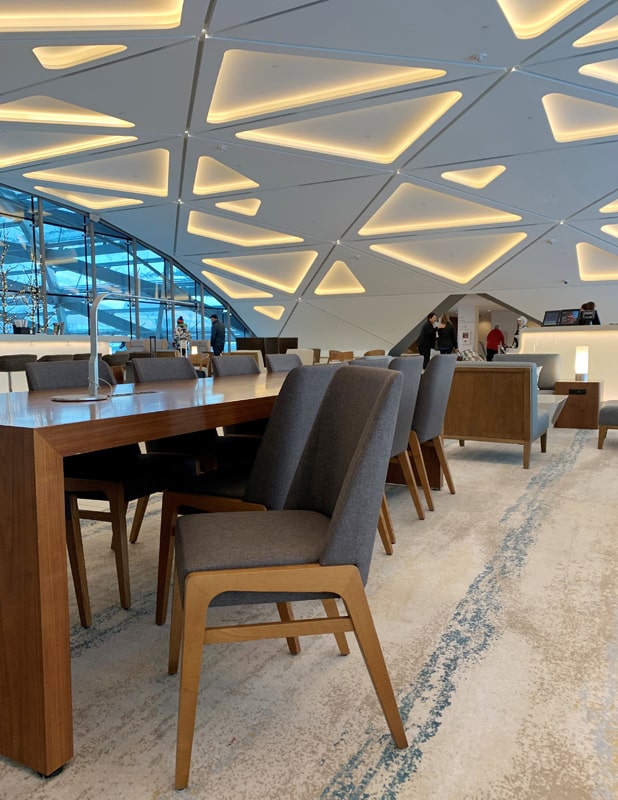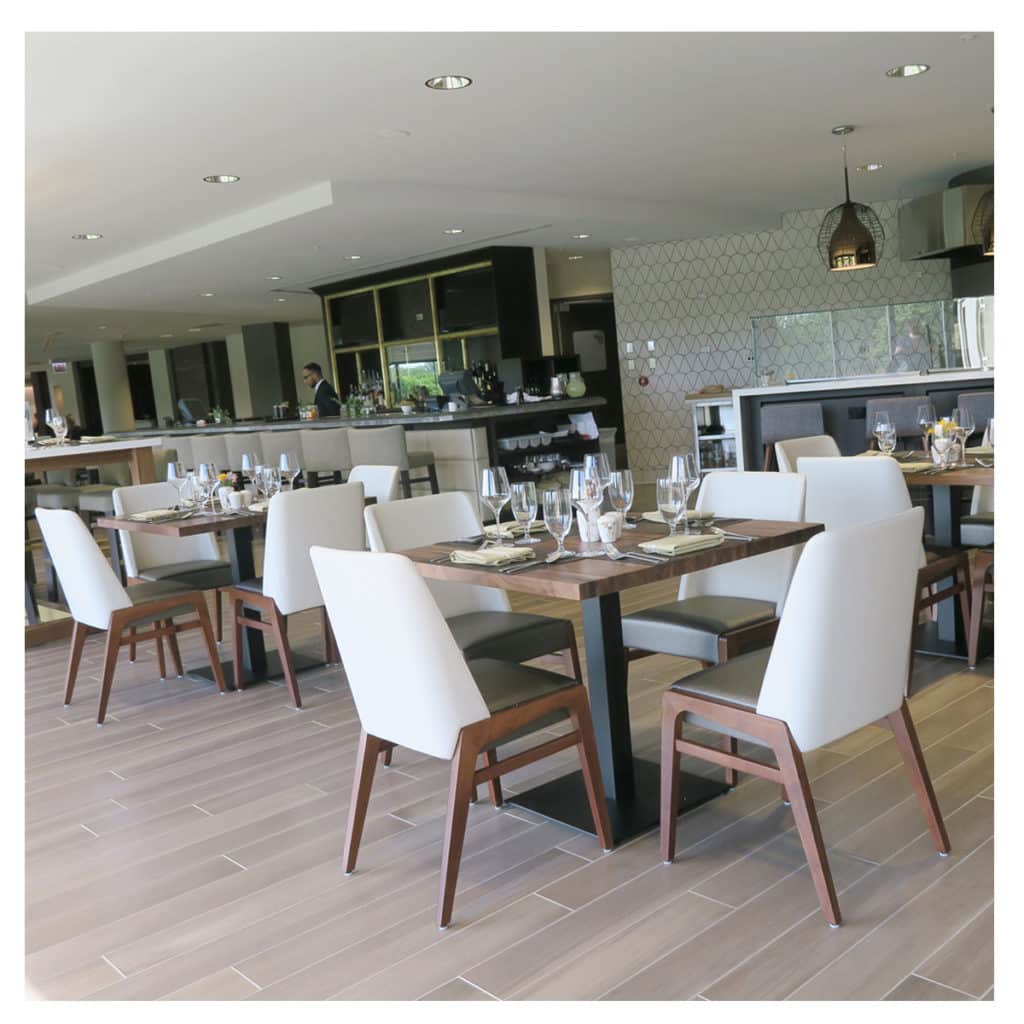Designing to Create Amazing Spaces
One of the most important skills for hospitality interior designers is balancing a clients’ wish list while ensuring an excellent guest experience. It is an underestimated yet necessary skill. Negotiating choices from materials to seating, lighting to color often means satisfying the tastes, needs, and whims of a client while impressing guests with the look of the design and providing a space for their comfort.
Helping onboard clients to your vision can be easier if they see the entire project broken into smaller, unique spaces. Dividing a project into distinct segments illustrates how each area is its own and yet contributes to the overall design of the space. Color, lighting, upholstery are materials used to define separate areas. And, when these materials are woven throughout the overall project, they unify the whole design.
Use Furniture to Unify a Space
Of course, furniture is also a unifying design element. Whether featured as an ensemble or a singular piece, furniture certainly is a major impact on a space. Using pieces from the same furniture collection creates a cohesive aesthetic throughout a restaurant or hotel design. It also allows designers to play with style, as furniture then bridges a project’s smaller, distinct areas into the overall design. Integrating fabrics, stains, and other materials into the furniture styling helps integrate these areas throughout a space.
Regina Urner, senior interior designer for Design Tribe, knows it is also important to stay true to the brand when designing for a hospitality space. In her 5 Key Elements of Restaurant Design, Urner reminds us that a fine dining restaurant should not have a ‘hodgepodge of chairs and tables,” or that cloth napkins belong in a BBQ joint. Employing Urner’s philosophy, using furniture from the same collection coordinates the differing spaces and keep continuity throughout a design and keeping it on brand. This is something your clients will notice and appreciate.
The opportunity to provide designers a seating collection with versatility to be used throughout a design is one of the reasons Aceray introduced its Gala collection in 2013. Gala blends modern and classic design, lending styling opportunities for casual to elegant spaces. This offers designers opportunities to incorporate the collection as ensemble or featured pieces.
Focus on Guest Comfort
Beyond adding to the ambiance of a restaurant or hotel, well-designed furniture must provide comfort for guests. There is no point for furniture only looking good without providing comfort. When guests are comfortable, they are more relaxed. For a restaurant, keeping guests comfortable equates to guests spending more beyond their meals, such as on after dinner drinks, desserts, or coffees. For a hotel, offering spaces for quite reflection, an area for relaxation, or a place to reunite with traveling companions, provide guests with distinct yet individualized featured comforts they now demand.
When designing for hospitality, from creating an overall look to the nuanced details is about providing guests with a unique and impressive space while staying true to the brand. Connecting distinct areas in a project is as big of a challenge as balancing the expectations of the client. From materials to lighting, environment to furniture, no detail is too small to consider in order to realize a fully cohesive design.




